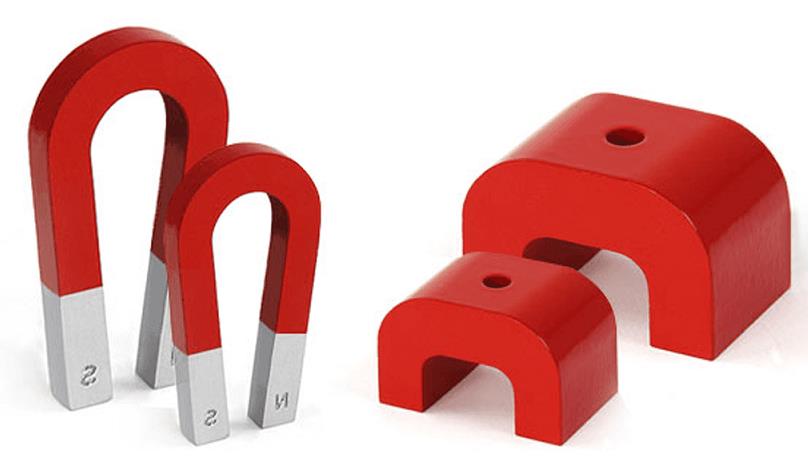What Is a Permanent Magnet?
Many of us have heard of permanent magnets, or even have used them, but when asked what is a permanent magnet, how many types of permanent magnets are there, and what are the applications of permanent magnets, few of us can answer. So in today's article, we will try to answer the above questions one by one.

What Is a Permanent Magnet?
First of all, let's figure out what is a permanent magnet.
Magnets that can maintain their magnetism for a long time are called permanent magnets, such as natural magnets (magnetite) and artificial magnets, etc.
Permanent magnets are not easily demagnetized or magnetized and the polarity of them will not change. However, if the permanent magnet is heated above the Curie temperature or in an environment with high reverse magnetic field strength, its magnetism will also decrease or disappear.
Some permanent magnets are brittle and may break at high temperatures. For example, the maximum working temperature of Alnico magnets is over 540 °C (1,000 °F), the maximum working temperature of SmCo magnets and ferrites is about 300 °C (570 °F), and the maximum working temperature of neodymium magnets and soft magnets is about 140 °C (280 ° F).
How many types of permanent magnets are there?
The first category of permanent magnets is alloy permanent magnet materials, including rare earth permanent magnet materials, such as Nd2Fe14B, SmCo, and AlNiCo.
The second category of permanent magnets is ferrite permanent magnet materials. Ferrite permanent magnet materials can be divided into sintered ferrite, bonded ferrite, and injection ferrite according to their different production processes.
In addition, Cu-Ni-Fe, Fe-Co-Mo, Fe-Co-V, MnBi, and A1MnC alloys were once used as permanent magnetic materials in history. However, due to their low performance yet high cost, these alloys are rarely used in most applications.
Related reading: Types and Uses of Permanent Magnet
What are the applications of permanent magnets?
Permanent magnets have a wide range of applications. For example, you can find them on TV, loudspeakers, radios, leather bag buckles, data cable magnetic rings, computer hard disks, and mobile phone vibrators. In short, permanent magnets are ubiquitous in people's lives, which facilitates our production and life.
Conclusion
Thank you for reading our article and we hope it can help you to have a better understanding of what is a permanent magnet, and its types and applications.
If you want to find out more about permanent magnets, we would like to recommend you to visit Stanford Magents for more information. As a leading magnet supplier across the world, Stanford Magnets has been involved in R&D, manufacturing, and sales of permanent magnets since the 1990s and provides customers with high-quality rare earth permanent magnetic products such as neodymium magnets, and other non-rare earth permanent magnets.















